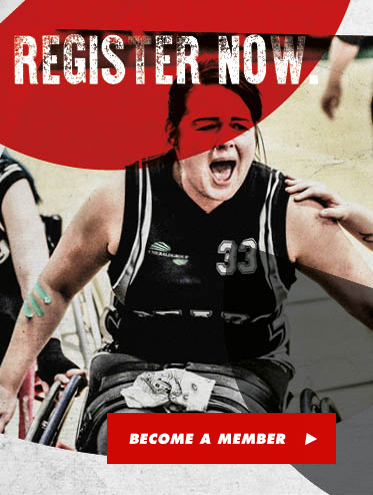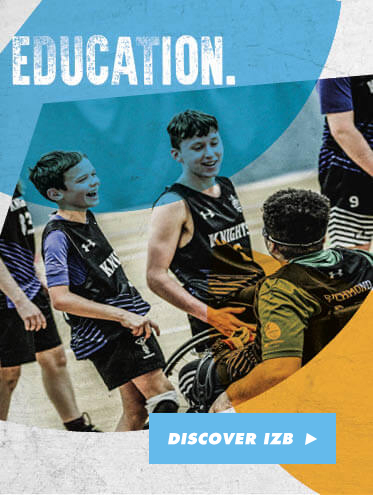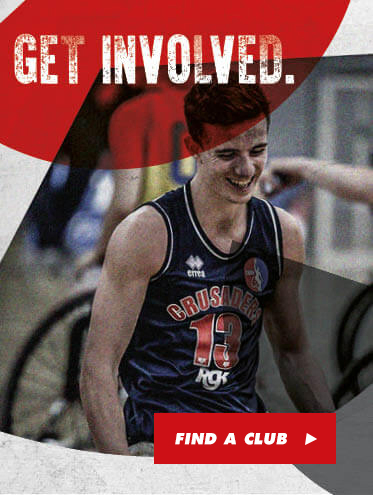In honour of International Women’s Day 2022, Caroline Matthews MBE reflects on the changes within women’s wheelchair basketball. Caroline has no shortage of experience, having dedicated a decade of her life to representing Great Britain in which she earned an impressive 125 caps and attended two Paralympic Games (Athens 2004 and Beijing 2008).
Outside of her duties on the court wearing the GB vest, Caroline has given a huge amount of her time and effort over the years into developing the women’s game within Wales and on the international stage. Caroline changed the landscape of the sport within Wales and co-founded Cardiff Celts (now Archers), and has held several coaching roles in both national and international capacities.
Recently you were part of the commentary team for a BWB Women’s Premier League match – how was that experience for you?
I loved it! You kind of get used to certain levels of nerves on a daily basis – work nerves, player nerves, coaching nerves…and I re-discovered a whole new type of nerves – commentator nerves! But I love chatting through and analysing basketball games, and it was a real privilege to be able to do this in my home town of Cardiff.
The BWB Women’s Premier League is a gamechanger for both the women’s game at home and internationally. Do you have a sense of pride in your personal involvement towards the growth of the women’s game?
I played wheelchair basketball for Great Britain for ten years (2001-2011). I worked full time as a lawyer throughout my time as an international basketballer, so it was like having two full time jobs. It was hard and we all sacrificed a lot. When I started to play wheelchair basketball there wasn’t a team in Wales – my first team was in Bristol and I soon moved to a national league team based in London. The MILES that I put on my cars were staggering!
But I just love this game (always have and always will!) it was all a million percent worth it. It gave (and continues to give) me so much, so many opportunities I would never have had if I hadn’t taken that plunge and gone to my first wheelchair basketball session – and I’m always looking for ways to give back to the sport that has given me so much.
The WPL is an enormous step forward for wheelchair basketball and, in particular, women’s wheelchair basketball, in the UK and I am thrilled to see one of the teams based in Cardiff. Twenty years ago there was no wheelchair basketball in Cardiff – and now we have one of the four WPL teams in the UK… imagine what will come next! I am very excited to see the growth of the WPL.
How has the sport changed since you first started playing, focusing on the women’s game in particular?
Wheelchair basketball has changed enormously since I began. When I started to play there wasn’t a separate Women’s League – we all played as part of the (predominantly male) National League teams – using a size 7 ball and often having to play different roles to, in some cases, work around the men in the team. The first Women’s League in the UK started in 2005 – and I remember holding a size 6 ball for the first time! The league gave the women’s wheelchair basketball players around the UK the opportunity to play only against other women (prior to that, this was available at international level). In that league (which is still thriving today), women played a full role on court – and were never just on the court “for points reasons”. It was great fun – and we all learned a lot. After a few years, Women’s League had enough teams to run in two divisions – and now we have the WPL! I’m very excited to see how WPL develops.
Funding is a huge part of the changes to the Women’s League that has come through. When I started playing, there was simply no funding. The GB team trained one weekend a month and we covered our own expenses…but we all had such passion for the game and it is great to see where that has led the sport today.
Compared to where the sport was when we started, the teams in the WPL today enable more athletes to better structure their lives around training, which will inevitably increase the standard of women’s wheelchair basketball in the UK.
I really can’t wait to see where the WPL league will go. Being able to build these teams around Universities offers athletes (from the UK and abroad) the opportunity to go to university, study (for your future) and train with the best support and coaches available at that location.
The WPL is such an incredible opportunity – I only wish I was twenty years younger!
Do you think the overall perception and awareness of the sport has changed since you started?
I think disability sport has always had a positive effect on people’s perceptions. When my knees became so severely degraded with arthritis that I could no longer play the running game of basketball – at the time, I didn’t know anything about disability sport generally or wheelchair basketball. I wasn’t aware that it existed and when it was suggested to me, as I wasn’t a full time wheelchair user, I didn’t think I would be able to play.
Eventually, I got up the strength to go to my first wheelchair basketball session and I was soon racing around the court in a chair – grinning from ear to ear and loving every minute of it. I was instantly hooked!
I think that there is now greater media coverage of disability sport – which can only serve to raise awareness of the opportunities available to people with any level of disability. From my perspective, it can only help the whole of society for everyone to realise what an individual CAN do…instead of focusing on limitations.
What advice would you offer to the future stars beginning their journey in the sport?
Give it a go! That’s all there is to it.
For anyone sitting on their sofa thinking, I’d like to have a go at wheelchair basketball (or any sporting activity) – you’ve got nothing to lose – so give it a go!
When I went to my first wheelchair basketball session in Bristol I had no idea where my basketball journey would take me (and continue to take me). I’ve never looked back – it was one of the best decisions of my life!





